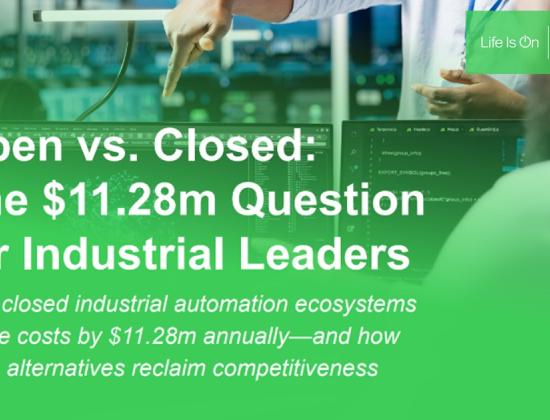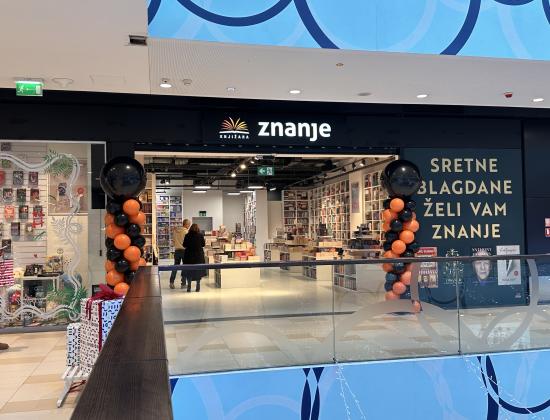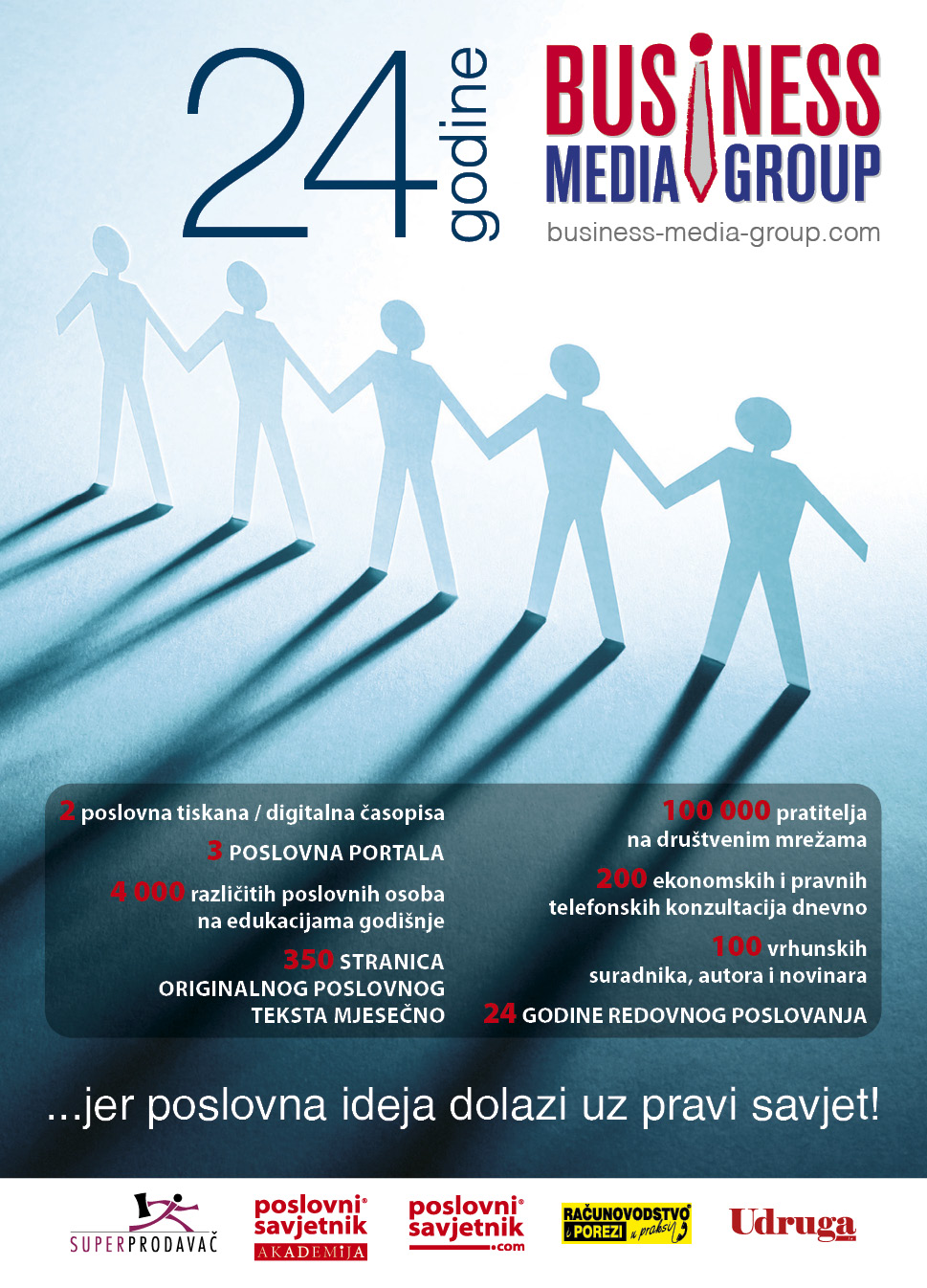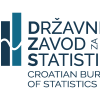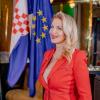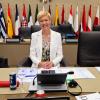Gabriella Civico, CSE president: Worrying trend across the EU, European ideals of freedom, democracy, and individual rights are increasingly being questioned and discredited - there are solutions and tools to combat this

Magazine Udruga.hr and web site Poslovni savjetnik had the privilege of speaking with Gabriella Civico, a prominent figure in the realm of civil society engagement within the European Union. As the President of Civil Society Europe (CSE), she brings a wealth of experience and insight into the dynamics shaping the EU's civil society landscape. With a background rooted in advocacy, activism, and community empowerment, Gabriella has been at the forefront of fostering dialogue, driving change, and promoting inclusivity within the EU. Join us as we delve into her perspectives on the current state of civil society, its role in European governance, and the challenges and opportunities that lie ahead in building a more cohesive and participatory Europe.
Udruga.hr: Can you share with us your journey from the UK to Belgium, with stops in Spain and Portugal along the way? How has living in different European countries shaped your perspective on civil society and the EU itself?
Gabriella Civico: I left the UK in 1998 as a young graduate after a short employment contract for a global youth organization based in London (WAGGGS) to take up a once-in-a-lifetime opportunity to be at the heart of what, at the time, was the biggest gathering of global representation of young people the world has ever seen. This was to be part of the core staff team of the World Youth Festival being organized in Portugal under the direction of the Portuguese Youth Ministry alongside the third session of the World Youth Forum of the United Nations system in partnership with the Portuguese National Youth Council.
Following that intense, rewarding, and at the same time challenging experience, I moved to Spain to raise a family and have some time away from leadership roles in civil society. During this time I had the opportunity to work in the private-for-profit sector both as an employee, employer and entrepreneur, whilst also being involved in grassroots volunteering in environmental and social projects.
The economic crash of 2006 was the catalyst, together with a newly acquired masters degree in E-learning, to pursue the next stage of my career back once again with civil society. This step involved a return to Portugal, this time to the south of the country in Faro (Algarve) to lead an international youth organization (YEU). Some months later, in moving the seat of this organization to Brussels according to the wishes of the membership, I was then based in Belgium and fully professionally engaged in the European civil society network field in Brussels.
These varied experiences, living and engaging with civil society organizations at different levels in over 4 different EU countries have taught me the limitations of the actual reality of the EU single market.
This was in terms of personal living: import duties to be paid on personal goods; documents to be translated; lack of recognition of formal educational attainment; requirements to pay taxes on earnings but without voting rights, etc., as well as in how civil society can, or in fact cannot, easily operate cross-border in the EU. This lived reality leaves me feeling blessed to have had all these opportunities to experience different lifestyles, environments and cultures but also provides me with the continued incentive and drive to advocate for citizens’ mobility rights in the EU, especially for volunteers, and also for the longstanding campaign for the “European Cross-Border Association” (ECBA) that is at last taking root in the EU’s legislative processes.

Udruga.hr: Your educational background includes a degree in Social Policy and Education from the University of Surrey and a Masters in Education in E-learning from the University of Hull. How have these academic pursuits influenced your approach to advocating for civil society causes?
Gabriella Civico: My academic pursuits have certainly been an influence and prepared me with deep knowledge and understanding of EU decision-making processes and subsidiarity principles, as well as some specific policy fields such as: Education, Global Development; Public Administration, Housing and social welfare, etc., but at a much lesser level than my non-formal learning experiences. I have been fortunate to have had many and varied non-formal learning experiences as a volunteer in youth organisations and in particular youth advocacy organisations such as: the British Youth Council; the European Youth Platforms, now functioning under the name of the European Youth Forum; Commonwealth Youth Programme and UN Youth Unit that have provided me with a wealth of hard, soft and transversal skills. These skills and competencies have proved essential to be able to take a co-creation approach to both policy development and policy advocacy focusing on bottom-up approaches where cross-sector and cross-field partnerships are key to success. Through this, together with the personal experience of growing up with a family and educational context where solidarity was a daily lived experience, partially because of family circumstances involving very limited financial resources, I have had the opportunity to experience first-hand the kindness of the support of volunteers acting in solidarity with others, alongside structured financial and material support from the State essential in combating poverty and supporting social inclusion.
My studies enabled me to have a deeper understanding of the interrelationships between public authorities and private institutions profit and not-for-profit and the importance of good coordination and collaboration between all if inclusion and prosperity for all, with no one left behind, should be a reality. The power of online engagement is another area that my formal education studies have left me in no doubt about. Whether that be for formal and non-formal learning and education, volunteering, or human connectedness in all spheres of personal and professional lives, e-connectivity is a defining change during my lifetime.
Udruga.hr: Could you tell us about your experience working as the Project Manager for the EYV2011 Alliance and later becoming the Director of CEV (Centre for European Volunteering)? How have these roles prepared you for your current position as President of Civil Society Europe?
Gabriella Civico: There is a continued debate in the “volunteer sector” concerning whether we are a sector at all but if we consider the EYV 2011 Alliance as a coming together of the volunteer sector in all its diversity of understanding, approaches, legal, historical and cultural frameworks for volunteering then I can say that it prepared me very well. Gaining a deeper understanding of these legal and cultural frameworks across Europe, not only for volunteering but for civil society as a whole, has given me a very privileged overview of the reality on the ground across Europe for all forms of civic engagement and civil society activity. This lived reality in my daily professional life over so many years enables me to empathise and understand the challenges being faced both inside and outside the EU by the members of the Civil Society Europe network, giving me the knowledge and examples to draw upon when advocating for civil society issues as part of my role as CSE President.
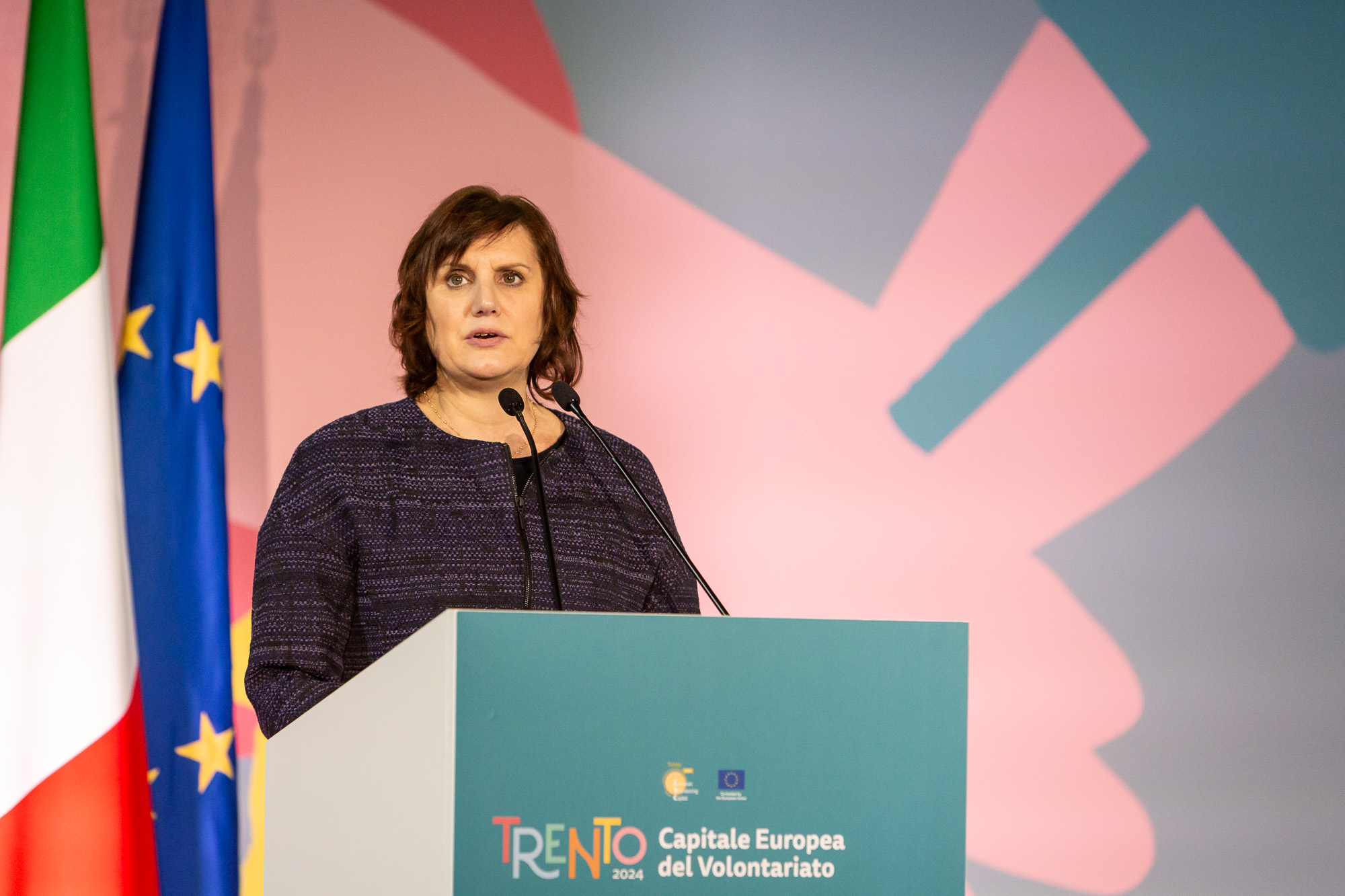
Udruga.hr: As someone deeply involved in advocating for better volunteering policies, what do you see as the most pressing challenges facing volunteering in Europe today?
Gabriella Civico: Volunteering contributes to the promotion, protection and implementation of people’s rights but volunteering in Europe is suffering from a general lack of investment and recognition in the context of an overall shrinking space with far-reaching and wide-ranging implications for volunteers, society and public policies. Volunteering also has a value as an outstanding source of learning and an important contributor to personal and professional development, and we have seen this especially demonstrated in 2023 and 2024 in the European Year of Skills.
There is a lack of comprehensive and comparative data on volunteering in Europe and CEV includes the ambition to reverse this trend as part of our advocacy priorities. We would like to know who is volunteering, and indeed who is not, what age and gender they are, as well as other discriminating factors.
This information would lead to more understanding about the inclusivity of volunteering and knowing more about the motivation of volunteers, and the quantification of numbers of regular or sporadic volunteers and how many hours they contribute would be extremely useful information for practitioners and policymakers alike.
Whether or not volunteers are replacing paid workers and whether they are increasing their employability would be equally important to know more about. Furthermore, how volunteering is contributing to reducing the gender gap and to improving health and well-being, including mental health, is critical information, together with having better measurement about the overall impact of volunteering on, for example, preventing climate change and on social inclusion, reducing inequalities and achieving the Sustainable Development Goals (SDGs). Finally, in these ever challenging times with shifting populations and changing demographics, the contribution of volunteers to recovery, resilience and promoting age-friendly societies and active ageing is critical.
Volunteering is a clear expression of European values and in times of increasing extremism, precarity and tension, it provides a unifying and stabilising force that builds on strengthening our common connections and interest, rather than differences and divisions.
I believe very strongly that volunteering is an activity with impact that goes beyond economic value and GDP measurements. European policies and programmes, together with the European social environment, should inspire, encourage and support quality volunteering. I have witnessed first-hand how volunteering contributes to the European Social model, to security, peace, cohesion and prosperity and how it provides a framework for an alternative narrative to extremist and anti-inclusive populist views and actions, as well as contributing to its prevention.
Back in 2021, CEV members approved a Blueprint for Volunteering in Europe (BEV2030), which has been endorsed more widely since then by other stakeholders. BEV2030 is organised around 5 thematic concepts: independent and inclusive engagement; new volunteers and methods; empowerment; appreciation of contribution; and resources for more value. The outcomes included in the BEV2030 serve as guidance to CEV and other stakeholders concerned with volunteering, especially policymakers, regarding the steps that need to be taken for volunteering to reach its true potential. It acknowledges that there are different cultural and legal contexts for volunteering in Europe and takes into account that the outcomes of the suggestions included will vary according to this variety of circumstances and different volunteer profiles, for example regarding age, but stresses that common values and aspects of quality indicators should be common throughout.
The approach taken for the BEV2030 is complementary to the one 10 years ago for the European Year of Volunteering 2011 (EYV 2011) when the Policy Agenda for Volunteering in Europe (PAVE) was co-created by members of the EYV Alliance of European Networks Active in Volunteering. Back then, we needed to focus on topics such as volunteer quality, volunteer management and volunteer infrastructure, and we did. That helped us all grasp what different countries and cultures at European level understand through different areas of volunteering and reach a closer level of common understanding. In 2021 and moving forward towards 2030, we place increased focus on the heart and soul of volunteering: what values are being expressed through volunteering; and how volunteering is an expression of democracy and solidarity.
We want to bring to policymakers the vision that volunteers are not just a source of people-power for essential and meaningful tasks in society, but they play an important role in social cohesion, interpersonal relationships, social transformation, and paving the way to making European values a reality.
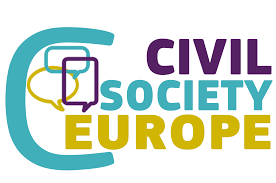
Taking each of the sections of BEV2030 in turn, the outcomes can be summarised in the following way:
Independent and inclusive engagement:
Policymakers should protect and support the power of volunteering as expression of EU values and as a transformative force in a decade of action towards strengthening the European values, achieving the SDGs⁸ that ensures resilient and sustainable communities delivering a positive impact on future generations.
New volunteers and methods:
In order to answer the growing number of citizens willing to offer their time and expertise as volunteers and address their changing needs the access to volunteer involvement needs to be improved and increased in scope and quality with the potential for volunteer engagement of people of all ages and backgrounds properly explored and implemented within innovative and flexible frameworks unlocking new possibilities. Quality principles for volunteering must remain central to all developments¹³, as must the general trends impacting on all civil society as identified by the EESC¹⁴.
Volunteering should not replace paid employment and the balance between state responsibilities and those of volunteer organisations around issues of unemployment and employability rates should be carefully considered and the potential of employee volunteering should be further exploited and developed.
Empowerment:
Thriving communities at the local level are often characterised by strong interpersonal connections, frequently established in the frame of volunteer-based and volunteer-led initiatives. If needs are to be continued to be met, discrimination & marginalization combatted, and human rights defended, more citizens from diverse realities and backgrounds will need to be empowered and supported for active engagement as volunteers to support themselves and others.
Appreciation of contribution:
Volunteers, volunteer-involving and volunteer infrastructure organizations continue to realise their potential as a force for the common good²5 . During the COVID19 crisis a high number of citizens offered their time and expertise as volunteers but it was not always possible to allocate roles. A more holistic approach to volunteering policy with a cross-cutting approach would lead to better matching of supply and demand.
Resources for more value:
It should be ensured that organizations are in a more secure position to contribute effectively to recovery processes and future resilience. It should be understood that the compassion, altruism, generosity and solidarity that underpins volunteering takes place in context, and that context should be an enabling one.
As the role of volunteers in Europe becomes ever more critical for the future of Europe, and for equality, social inclusion and well-being in particular, then the need to have properly trained and qualified volunteer managers also increases. To have a European standard against which all volunteer management training and qualifications could be compared, as well as freely available curricula with accompanying resources and materials prepared in a pan-European manner, would play a huge role in increasing quality and enhancing the impact of volunteers. This challenge is addressed by the Erasmus + project EVI DEMS in which CEV is a partner together with our member in Croatia (Croatian Volunteer Development Centre – CVDC/ HCRV). It will enable the volunteer sector in Europe to become stronger through having a more prepared higher education sector that has the tools and materials to better meet the training needs of current and future volunteer managers. It will also enable volunteer-involving organizations to better argue for the professional recognition of volunteer managers in those countries where it is not currently possible in Europe. The lack of professional recognition frequently prevents organizations from funding salaries of volunteer managers and attracting competent people to the role, which hinders the development of volunteering and its impact.
Udruga.hr: You've contributed your expertise to various EU expert and advisory groups such as EQF, Europass, and Mobility of Young Volunteers. How do these initiatives intersect with the broader goals of civil society in Europe?
Gabriella Civico: The goal of Civil Society Europe (CSE) is to be the coordinating body for European civil society networks. Participation in all of these bodies requires collaboration and coordination with other European civil society networks that are, in the main, subsets of CSE, particularly in the fields of volunteering and solidarity, as well as lifelong and life-wide learning. Being a member of these expert groups also requires close collaboration with, and understanding of, the different positions of the EU Member States on various topics, as well as clear appreciation of the relative competencies (or lack of them) of the different EU institutions and the Member States themselves. The principle of subsidiarity is very often paramount in the discussions in these groups and this is also a key component when considering the broader goals of civil society in Europe, especially when it concerns shrinking civic space and reduction of media and personal freedoms that can be witnessed in some Member States. All of these groups aim for increased citizens’ rights in the EU with improved interoperability between practices and systems of the different EU Member States in areas which can have considerable impact on the realisation and achievement of the personal and professional potential of all citizens and residents in the EU.
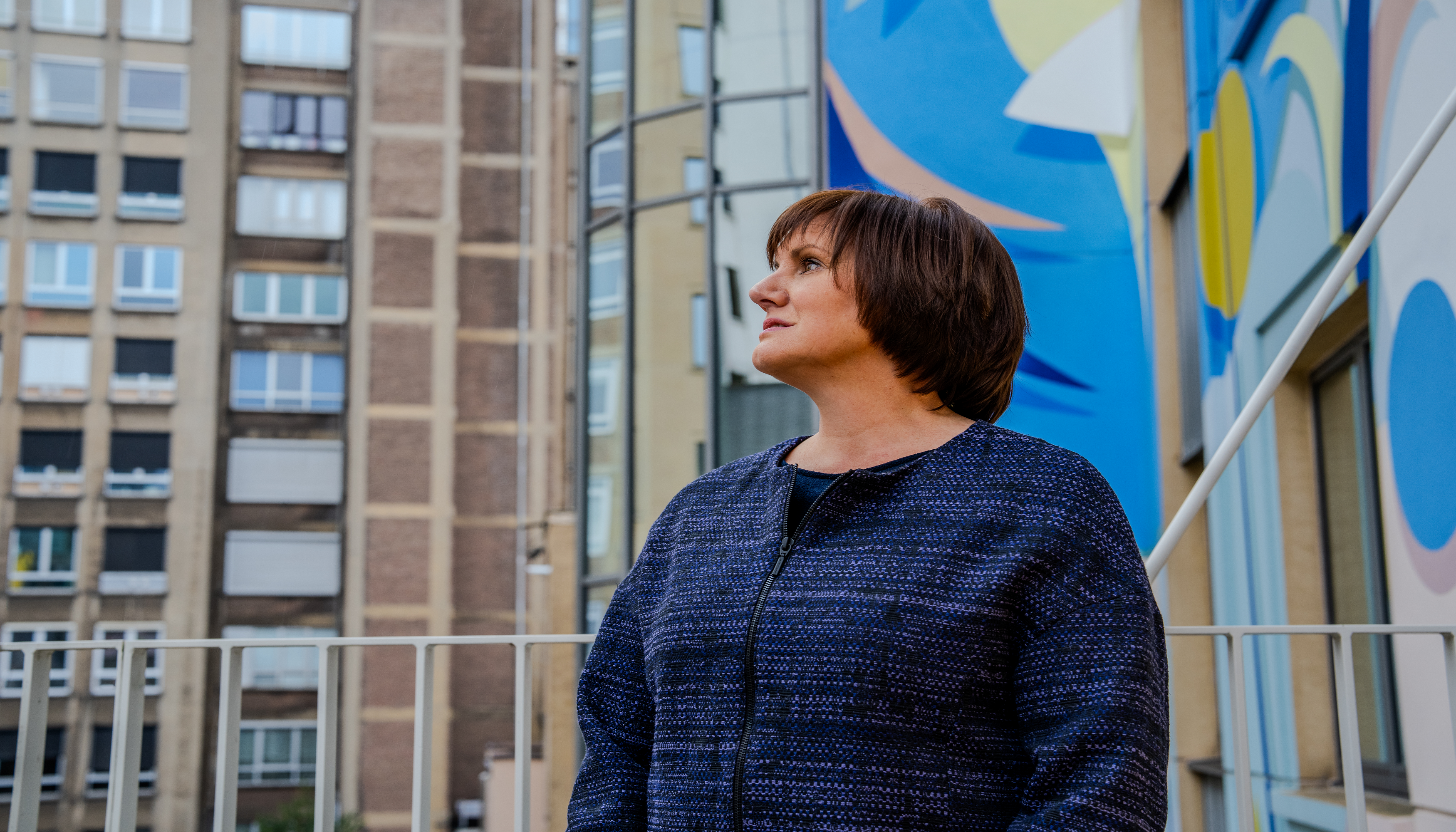
Udruga.hr: Could you elaborate on your involvement in the European Solidarity Corps Resource Centre Advisory Group? What impact do you hope this initiative will have on promoting solidarity and civic engagement across the EU?
Gabriella Civico: In the absence of an embedded stakeholder engagement mechanism for the governance of the European Solidarity Corps (ESC), this is the forum where issues related to the ongoing implementation and development of the programme as concerns, for example, outreach and quality issues, can take place.
For the CEV network, keeping European Solidarity Corps as a separate programme for youth within the overall youth strategy distinct from other youth programmes, such as Erasmus +, is essential in order to ensure that the question of solidarity remains at the heart of the programme. The ESC is one of the few spaces supported by public authorities that gives young people the freedom and empowerment to focus on the needs of others rather than on their own personal accomplishments and successes or failures in reaching personal goals and achieving personal ambitions that can be disproportionately focused on personal gain and attainment. The ESC reminds young people that they have a place in society and that they can contribute to society.
This programme should be the basis of the next steps towards a broader European Civic Engagement & Volunteering Strategy, which in turn should be part of an overarching Civil Society Strategy for the EU, as advocated for by CEV.
Udruga.hr: What inspired the establishment of Civil Society Europe in 2014, and what are the primary objectives of the organization under your leadership?
Gabriella Civico: CSE was founded in December 2014 as an initiative of organizations that had worked together in the European Year of Citizens Alliance. In June 2016, it was established as an international not-for-profit association under Belgian law, and since then, CSE has carved out a unique space as the coordination of civil society organizations (CSOs) which are interested in strengthening the role of civil society and civic space at EU level, and has achieved recognition as the point of reference for EU institutions on civil dialogue and civic space.
CSE’s mission is to contribute to EU recognition of the essential role and value of independent and plural CSOs in building and nurturing a democratic society that is based on fundamental rights. CSE also works to create the conditions for the development of a strong and independent civil society voice and an effective, open, and structured civil dialogue at the EU level, as well as a thriving and enabling civic space across the Union.
Under my leadership, CSE's primary objectives are enhancing CSOs’ democratic participation at the EU level, including participation in the follow-up of the Conference on the Future of Europe (CoFoE), as well as in the management of ongoing and future crises. Moreover, with the European Parliament elections in June 2024 holding a key role in the EU's future, we are campaigning in favour of an enabling civic space and strengthened civil dialogue. Other CSE primary objectives under my direction are: defending EU values, fundamental rights and the rule of law; developing building blocks for a European Civil Society Strategy based on participation, protection and support of civil society; increasing civil society, stakeholders and decision-makers’ awareness of CSE’s work; and providing tools to CSOs to reinforce their accountability towards their members, as well as towards citizens and institutions at all levels.
Udruga.hr: How do you envision Civil Society Europe contributing to the EU's policymaking process and fostering greater citizen participation in governance?
Gabriella Civico: To answer this question, I would like to bring up some of the ideas discussed during the recent European Economic and Social Committee’s 2024 Civil Society Week, where we had the pleasure of co-organising an insightful workshop about smart public policymaking in the EU. One of the main consensus reached is that to enhance democracy and the quality of public policies, the currently narrow margins of policymaking processes need to be widened by including civil dialogue processes and mechanisms, which would enable governments at all levels to develop higher quality, more evidence-based policymaking.
In that sense, we envision Civil Society Europe (CSE) acting as a bridge between CSOs and public authorities which promotes meaningful mechanisms for civil dialogue, increases EU institutions’ awareness about civil society, coordinates evidence-based civil society input in public policymaking, as well as strengthens partnerships between CSOs and policymakers. We strongly believe that policies co-created with the communities and CSOs have a stronger rate of effective implementation. Therefore, within CSE we strive to bring civil society’s perspective to the table, coordinate CSO’s input on the development of content and tools for democratic participation, reinforce existing participation pathways, as well as advocate for shaping policies in ways that civil society and citizens can feel a sense of ownership regarding policies. Moreover, we believe that CSE’s work can enhance CSOs’ participation at the EU level by providing tools, knowledge and training.
Similarly, we believe that more attention needs to be paid to the effective implementation of public policies and civil dialogue mechanisms. In that regard, we envision CSE as a relevant stakeholder that follows up on the implementation, monitoring and reviewing of policies and civil dialogue processes, such as the follow-up of the Conference on the Future of Europe.
Udruga.hr: In your opinion, what role does civil society play in addressing key societal issues such as climate change, social inequality, and democratic governance within the EU?
Gabriella Civico: As we argue in our Civil Society State of the Union 2023 report, a vibrant civil society that can act independently and at its full capacity is an integral part and a cornerstone of a resilient democracy. Civil society in the EU plays a key role in listening to and strengthening citizens’ pluralistic and collective voices, including vulnerable and marginalised groups. Only under structures of good governance that prioritise these voices and include organised civil society and citizen perspectives into EU policies and initiatives can decisions be made that are beneficial to all.
Civil society contributes to fostering a culture of solidarity and respect of fundamental rights at the core of the EU, as enshrined in the Charter of Fundamental Rights of the EU. Moreover, as we argue in our Civil Society for EU campaign in the framework of the upcoming 2024 EP elections, civil society represents people all across Europe and empowers them to speak up for their rights.
Despite facing several limitations, civil society continues to contribute to effective policymaking. We provide a platform for people to connect with policymakers and participate in decisions that affect them.
We provide crucial and empowering services that enable people and societies to be more resilient and more inclusive overall. Recent crises like the COVID-19 pandemic and Russia’s full-scale invasion of Ukraine have proved once again the key role that civil society plays in supporting governments and institutions to respond to people's needs, especially in times of crisis.
Likewise, the socio-economic impact of civil society is not to be underestimated. For example, according to the United Nations and the Directorate General Education and Culture, CSOs employ 13% of the European workforce and mobilise over 100 million volunteers all over Europe, providing key services and ensuring no one is left behind.
To mention more data, according to a Eurobarometer survey, more than three-quarters of people living in the EU agree that civil society has an important role to play in promoting and protecting democracy and common values, and 87% of Europeans consider that civil society has an important role in holding those in power accountable.

Udruga.hr: What strategies do you employ to ensure that the voices of diverse civil society actors are heard and represented within the European policymaking arena?
Gabriella Civico: One of the key strategies that we have been working on is to bring together as many EU organisations as possible, both as EU networks of national organisations, but also individual national organisations on issues that are relevant to all. When we are many and working together, we are more likely to be heard. It also brings further legitimacy to different civil society claims.
Another important aspect is to raise awareness about the importance of civil society organisations and what they bring to society, not only in terms of providing services to people or filling the gaps of the public and private sector, but also advocating for improving policy or even holding governments accountable. We work towards the recognition of the civil society sector next to business and trade unions. It is for this reason that we claim a space for civil society in all areas of discussion on specific policy areas or horizontal ones. For instance, we managed to ensure a place for civil society in the Plenary and Working Groups of the Conference on the Future of Europe, as well as an increased attention to civic space within the European Commission’s annual Rule of Law Reports and the review of the EU Charter of Fundamental Rights.
Similarly to social dialogue, we need a structured civil dialogue between civil society organisations and policymakers at the level of the different national and EU institutions, with clear mechanisms for review of upcoming policy and legislation, as well as for agenda-setting. This is at the core of our Civil Society for EU campaign towards the upcoming European Parliament elections.
Udruga.hr: As the President of Civil Society Europe, how do you navigate the complexities of coordinating efforts among various civil society organisations with diverse interests and priorities?
Gabriella Civico: I would say that this is always a difficult balancing act given that we represent and work with organisations not only with different interests and priorities, but also with different cultures, and human and financial resources. Our mission is to promote an enabling framework for civil society and reinforce dialogue with policymakers. In order to ensure that dialogue happens in practice, it is important to work towards common objectives and avoid a scenario where civil society asks are perceived as competing or contradictory on issues of common concerns, since the latter would be detrimental to all organisations. When we identify a common issue of concern, we bring together organisations also beyond CSE’s membership to share different views and perspectives and to identify common issues, and we try to work on a common position and strategy, as well as share intelligence and resources to approach decision-makers. In most of the cases, different organisations find an added value to our work, and decision-makers do so as well. Also, I find it important that all contributions are valued and that different organisations can be visible for the work that they do towards decision-makers. What is important for me is to work towards a common goal and achieve an outcome that will benefit civil society organisations whatever their area of activity or resources.
Udruga.hr: What initiatives or campaigns is Civil Society Europe currently prioritising, and how can individuals and organisations get involved? What advice would you offer to individuals who are passionate about civic engagement and social change within the EU context?
Gabriella Civico: Given the relevance and proximity of the next EU elections, one of our top priorities is the “Civil Society for EU” campaign, an EU-wide civil society campaign around the 2024 EP elections highlighting the role and value of European civil society and calling for its better recognition, support and engagement. Led by CSE and Social Platform, the campaign has brought together a coalition of over 40 civil society networks and platforms, and its manifesto for better civic space and civil dialogue has reached over 200 endorsements by civil society organisations (CSOs). We highly encourage CSOs in Croatia to join the campaign by endorsing the manifesto and inviting EU candidates to sign our pledge and commit to safeguarding civic space in Europe. More information can be found here: https://civilsocietyforeu.eu.
In terms of other relevant initiatives, we continue to coordinate civil society’s perspective on the design and implementation of the European Commission’s Defence of Democracy (DoD) Package. Although we welcome the proposal as a potentially important contribution to enhancing democratic participation, protection, resilience and recognition of CSOs, we continue to warn, together with our members and partner organisations, against a proposal within the DoD Package for legislation on foreign covert interference because of its undue impact on fundamental rights while not addressing effectively the threats to our democracies.
We are also monitoring and following up on decision-making on proposals for EU legislation and recommendations on removing cross-border obstacles for associations. CSE is leading a coalition of organisations working in the not-for-profit and social economy sectors to continue the efforts towards a European Cross-Border Association (ECBA) statute.
Regarding individuals passionate about civic engagement and social change, my biggest advice to them is to join, volunteer for and/or support CSOs, whether on the local, national or EU level, in any way that they can.
Information is power, so keeping updated about democracy-related issues is key. Moreover, with the EU elections so close, voting is a must! I would suggest checking election campaigns to learn about political parties’ proposals on EU issues. Being aware of this is important to give an informed vote and hold authorities accountable.

Udruga.hr: Given the challenges posed by the COVID-19 pandemic, how has Civil Society Europe adapted its strategies to continue advocating for the needs of citizens and communities across Europe?
Gabriella Civico: As a response to the COVID-19 pandemic, Civil Society Europe was active in conducting research regarding how this experience affected the work of civil society organisations (CSOs) across the EU, as well as in advocating for the respect of fundamental rights, civil dialogue and civic space by the EU institutions and the Member States. CSE called on EU Member States to not use the pandemic as a pretext to reduce the transparency of their operations, restrict fundamental rights or to silence critical voices. Moreover, in response to lowered standards for civil dialogue in law-making, CSE was vocal on requesting the involvement of CSOs in consultations on major legislation intended to address the pandemic’s effects.
In addition to this, CSE also follows the implementation of the Recovery and Resilience Facility (RRF), including the structured and meaningful involvement of CSOs in the implementation of the National Recovery & Resilience Plans (NRRPs).
Udruga.hr: Looking ahead, what are your hopes and aspirations for the future of civil society in Europe?
Gabriella Civico: I hope for a Europe where civic space is strengthened and civil dialogue is valued and encouraged, so that civil society is more able to continue playing a crucial role in attaining beneficial social outcomes, contributing to better governance and greater wellbeing for all.
In CSE, we envision the adoption of a European Civil Society Strategy that provides a safe and enabling environment for CSOs, includes an EU mechanism to protect civil society, activists and human rights defenders, as well as ensures adequate, consistent and flexible structural funding to carry out our role effectively.
We also aspire for an EU inter-institutional civil dialogue agreement that recognises civil dialogue as an essential element of European participatory democracy. This agreement should be developed in cooperation with civil society, to ensure it fully reflects its needs.
Udruga.hr: Croatia has been grappling with challenges related to illegal migration, often leading to tensions and human rights concerns. What strategies do you believe could effectively address these issues while upholding humanitarian values and international obligations?
Gabriella Civico: I firmly believe that the challenges of illegal migration in Croatia and across the European Union must be addressed with a steadfast commitment to the humane treatment of every individual. This commitment is not just a moral imperative but also a crucial aspect of upholding the rich tapestry of values that define our European community.
Firstly, it is essential to recognise that every person, regardless of their legal status, deserves to be treated with dignity and respect. This principle is enshrined in the international human rights standards that the EU has pledged to uphold. Therefore, our approach to managing migration flows must always be grounded in these values, ensuring that the human rights of all individuals are respected and protected.
In practical terms, this means developing comprehensive asylum and integration policies that are not only legally sound but also compassionate. Our asylum processes should be clear, fair, and efficient, adhering to international human rights standards. As argued in our Civil Society State of the Union (CS SOTEU) 2023 report — this report is the result of 5 months of collaboration among 43 independent European networks of national civil society organisations — we need a rights- and solidarity-based European approach to migration and protection of people on the move. This includes: 1) agreeing on a common EU governance of migration and asylum centred on solidarity and on the respect of people on the move’s fundamental rights; 2) facilitating structural, quality routes for all people on the move; 3) developing comprehensive migration and inclusion policies based on autonomy, equity and participation; 4) empowering civil society organisations to freely support migrant, refugees or asylum seekers, regardless of their residence or migration status; and 5) adopting and promoting attitudes and discourses that de-polarise migration and diversity.
At the same time, integration programs must be put in place to facilitate the social, economic, and cultural integration of refugees and migrants. These programs are essential for fostering mutual understanding and respect between migrants and host communities.
Community engagement and public awareness campaigns also play a vital role. It is important to counter negative stereotypes and misinformation by highlighting the positive contributions of migrants and refugees to our societies. Local communities must be involved in integration efforts, promoting a culture of understanding and solidarity. As mentioned before, supporting civil society and volunteer organisations is another key aspect. These organisations often provide critical support to migrants and refugees, including legal aid, healthcare, and humanitarian assistance. Ensuring that they have the necessary resources and support is essential for their effective operation.
Finally, addressing the root causes of illegal migration is a long-term and fundamental approach. This involves the EU redoubling efforts to act for peace, democracy and human rights in the world, and to address climate change and inequalities, as argued in our Civil Society State of the Union 2023 report. The EU can and should do this by: 1) playing a positive role in a geopolitical world, including by committing to building equal partnerships; 2) promoting democracy, civic space and human rights globally, including by robustly supporting civil society outside of the EU in all its diversity and promoting an enabling environment for civil society and civic space in the EU’s partner countries; 3) fostering and preserving peace, democracy and freedom, including by extending qualified majority voting to the field of EU foreign and security policies to enable the EU to act more quickly on foreign affairs matters, including sanctions.
Udruga.hr: Recent years have seen a concerning trend of SLAPP lawsuits targeting journalists and media outlets? How can Croatia ensure press freedom and protect journalists from legal harassment, while also combating corruption and ensuring transparency in public affairs?
Gabriella Civico: The issue of SLAPPs (Strategic Lawsuits Against Public Participation) targeting journalists and media outlets is indeed a concerning trend that poses a significant threat to press freedom and democratic discourse.
Croatia, like other democracies, faces the challenge of protecting journalists from legal harassment while simultaneously combating corruption and ensuring transparency in public affairs.
SLAPPs are a significant issue, as they are used to intimidate and demonstrate political and financial power, thereby impacting society and hindering independent journalism. In the last years, SLAPPs have increased substantially in the EU and Croatia is among the countries with the highest number of lawsuits brought against activists and the media, creating a chilling effect. As explained in the Coalition Against SLAPPs in Europe (CASE)’s first report in March 2022, the concept of ‘chilling effect’ refers to the fact that “SLAPPs are different to other intimidatory legal actions because their intent is to silence critical voices from raising matters of public interest to encourage public debate. As a consequence, those targeted and those who might have also expressed themselves are stopped from speaking out in fear of the high financial costs and emotional drain involved.”
In addition to targeting journalists and the media, SLAPPs also target civil society organisations and individual activists. One of the latest examples of such SLAPPs in Croatia is targeting the coordinator of an environmental non-governmental organisation (NGO).
The Croatian state forestry company, Hrvatske Šume, has launched three SLAPPs against Vesna Grgić, Coordinator of the environmental NGO Green Squad (Zeleni Odred in Croatian). The charges in all three lawsuits are that Vesna has "committed a criminal offence against the honour and reputation" of the company. They relate to a social media post and a YouTube video in which Grgić criticised intensive and destructive logging, including in Natura 2000 sites, as well as serious irregularities on the part of Hrvatske Šume.
To tackle the increase in SLAPPs in the EU, the European Commission proposed in April 2022 an anti-SLAPP Directive. In our Civil Society State of the Union 2023 report, we called for the adoption of this proposal but with even stronger and more ambitious measures, as this would contribute to defending and strengthening a safe and enabling environment for civil society in the EU. In fact, strong anti-SLAPP legislation is part of the European Civil Society Strategy that we wish for the EU to adopt.
On 27 February 2024, the EP adopted the anti-SLAPP Directive in a historic Plenary vote. CSE joins the CASE in welcoming the adoption of the Directive, as it is binding and sets the minimum standards to protect public watchdogs (including civil society organisations, activists, rights defenders, journalists and media outlets) from abusive litigation in the form of SLAPPs. Indeed, the Directive: 1) enables national courts to dismiss SLAPPs in an accelerated procedure early in proceedings; 2) contains a broad definition of SLAPPs on matters with cross-border implications; 3) seeks to deter potential claimants from launching SLAPPs. However, as noted by the CASE, the Directive failed to include strong language on compensation for public watchdogs and the threshold test used to dismiss SLAPPs; instead, it is up to Member States to decide on this at the national level. Now, we urge EU Member States, including Croatia, to transpose the Directive as swiftly and effectively as possible, and to ensure robust protections for SLAPP victims.
Besides the anti-SLAPP Directive, it is important to note that in Croatia, as well as across the EU, civil society organisations play a vital role in advocating for and educating about good governance, anti-corruption and press freedom. Additionally, promoting transparency and robust anti-corruption measures is crucial.
This involves enforcing stringent disclosure requirements for public officials and empowering independent anti-corruption bodies. Educational and support initiatives for journalists are also essential, providing them with legal rights training and establishing support networks for legal aid. Fostering a culture of openness and respect for the press is necessary, with government and public institutions actively promoting the role of the press in a democratic society and engaging in constructive dialogue with media organisations.
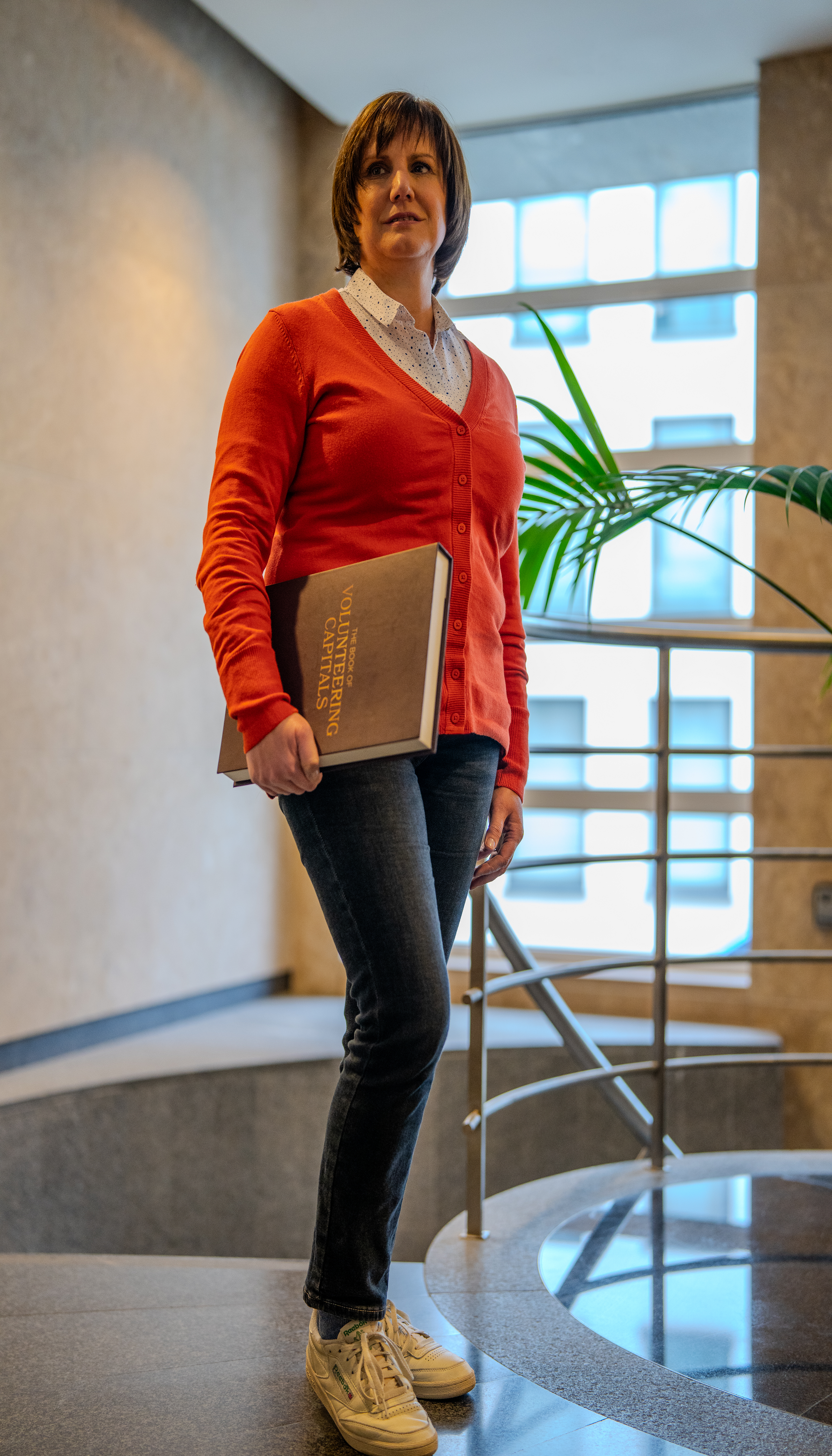
Udruga.hr: How do you assess the new law referred to in the media as 'Lex AP' (with AP standing for the initials of Andrej Plenković, the current Prime Minister), which introduces criminal liability and imprisonment penalties for whistleblowers who disclose information from judicial investigations to journalists? Many have described it as a 'grave digger of journalism' and a new blow to the already burdened media and journalists facing SLAPP lawsuits.
Gabriella Civico: The reaction from civil society organisations in Croatia, particularly the Croatian Journalists’ Association (CJA, or HND in Croatian), reflects significant concern about the impact of the new law (‘Lex AP’) on press freedom and whistleblower protection. According to their assessment, this legislation, by imposing penalties on whistleblowers, could severely hinder journalistic practices, especially in the realm of investigative journalism. Journalists often depend on whistleblowers to bring stories of public interest to light.
Press freedom and the safeguarding of whistleblowers are fundamental to a democratic society. Laws that overly restrict these freedoms contradict the core principles of transparency, accountability and open governance. In the current climate of democratic backsliding, such measures could contribute to a broader erosion of democratic values. It is crucial to evaluate 'Lex AP' against international standards and practices concerning press freedom and whistleblower protection. The global trend in many democracies has been towards bolstering protections for whistleblowers and ensuring that journalists can report on sensitive or controversial issues without fear of legal consequences.
If Croatia intends to enact this restrictive legislation, it will contradict this positive trend and raise serious concerns about Croatia’s commitment to upholding a free, open and democratic society.
Udruga.hr: Corruption remains a persistent issue in Croatia, affecting various sectors and undermining public trust in institutions. What concrete steps do you propose to combat corruption effectively, and how can whistleblower protection laws be strengthened to encourage reporting and prosecution of corrupt practices?
Gabriella Civico: In 2023, Croatia scored 50 out of 100 in Transparency International’s Corruption Perceptions Index (CPI). Croatia's score indicates a significant concern and that more needs to be done to combat corruption effectively and to rebuild public trust. Addressing the issue of corruption requires a comprehensive and multi-faceted approach, which is crucial not only for reducing corruption but also for restoring and enhancing public trust in institutions. Strengthening anti-corruption bodies is a vital first step, by ensuring these bodies have the necessary independence and resources to operate effectively and without political interference. This would send a strong signal to the public about the seriousness of tackling corruption.
Promoting transparency in governmental activities is also critical. Education and awareness campaigns about the importance of integrity and ethical behaviour in public and private sectors can help foster a culture of accountability. When citizens understand the impact of corruption and value integrity, they are more likely to support anti-corruption efforts and hold their leaders accountable.
Fighting corruption means also ensuring that activists, civil society organisations, journalists and other public watchdogs are able to denounce corruption. Governments at all levels must ensure that freedoms of association, expression and assembly are supported through an enabling framework, and that whistleblowers, human rights defenders, civil society organisations and journalists are protected so that civil society can play its part in the system of checks and balances.
In Croatia’s case, given the risks posed to whistleblowers and independent journalism by the recently adopted law known as ‘Lex AP’, lawmakers and the government should adopt measures to ensure the protection of sources and the right to information.
More broadly, we support the recommendations set out in Transparency International’s aforementioned 2023 CPI: strengthening the independence of the justice system; introducing integrity and monitoring mechanisms; improving access to justice; making justice more transparent; promoting cooperation within the justice system; and expanding avenues for accountability in grand corruption cases.

Udruga.hr: Conservative Catholic associations in Croatia exert significant influence on social and political discourse. How do you assess their impact on the EU's societal norms and values? Does their narrative align with the ideas of Europe, or does it harm them, playing into the hands of those who seek the downfall of the European Union, such as Russia, for example?
Gabriella Civico: Historically, civil society movements have played a significant role in advancing many of the values that are now integral to the European Union, such as human rights, democracy, social justice and environmental sustainability. These values, which also stem from a spiritual background and history, have become embedded in the policies and ethos of the EU.
The EU is characterised by a diverse tapestry of cultures, beliefs and values. It prides itself on pluralism and the ability to accommodate a wide range of viewpoints, including those of conservative religious groups. In many aspects, the narrative of conservative Catholic associations might align with certain European values, like the emphasis on family, community cohesion, and social welfare, which are integral parts of the European social model. However, if their stance challenges fundamental EU principles, such as gender equality, LGBTQ+ rights, respect of minorities, and freedoms of expression, assembly and association, there would be a divergence. The EU places strong emphasis on these rights as part of its core values.
Any narrative, whether from conservative Catholic groups or any group in society, whether it is conservative or progressive, that undermines the EU's commitment to human rights, inclusivity and tolerance could be seen as potentially harmful to the unity and values of the Union. The challenge for the EU is to balance these diverse viewpoints in a manner that respects the fundamental values upon which the Union is built, while ensuring that all voices are heard and considered. This inclusivity is crucial for the legitimacy and resilience of the European project. Institutions must steadfastly uphold the fundamental values of democracy, human rights, the rule of law and equality. This involves protecting the rights of all citizens and people living in the EU, regardless of their ideological leanings, religion or cultural background, while also ensuring that these leanings, religions or backgrounds do not infringe upon the rights of others.
Udruga.hr: There have been attempts to discredit European ideals of freedom and individualism in Croatia, often in favour of nationalist or authoritarian narratives. How can civil society organisations and advocates counter these efforts and promote a more open, democratic, and European-minded society in Croatia?
Gabriella Civico: As a European network of civil society organisations, we recognise a concerning trend across the EU, where European ideals of freedom, democracy, and individual rights are increasingly being challenged and discredited. In response to this broader trend, it is crucial to emphasise education and dialogue as fundamental tools to counter these narratives and reaffirm the value of European ideals.
We would like to see more concentrated efforts across Europe to integrate the principles of democracy, freedom, and individual rights into educational curricula. Workshops, public discussions and awareness campaigns can significantly enhance understanding and appreciation of these values, which are foundational to the European identity. In the face of this growing challenge, strengthening public discourse is critical. We hope for a robust expansion of platforms, including social media, public forums and traditional media, to foster informed discussions across the EU.
As civil society organisations, we also have an increased responsibility to counter misinformation, support critical thinking, promote civic engagement, and reinforce the benefits of European values, especially in times when they face scepticism.
Journalist: Goran Jungvirth for Business Media Group Zagreb issues (Udruga.hr and Poslovni savjetnik)

